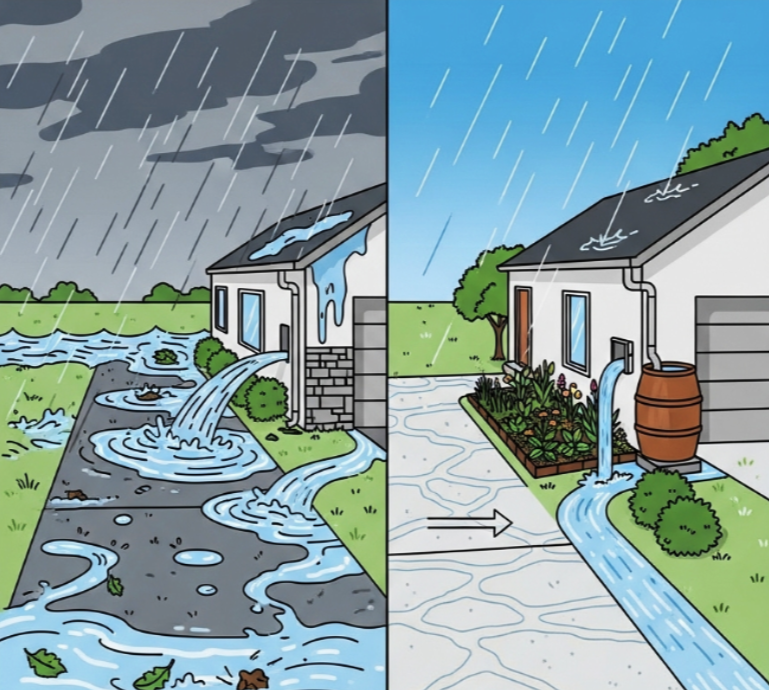Stormwater, seemingly just rainwater flowing over surfaces, can pose significant threats to both residential and commercial properties. Improper management can lead to flooding, erosion, structural damage, and even environmental concerns. Understanding the principles of stormwater management and taking proactive steps is crucial for protecting your investment and ensuring its longevity. This guide will explore essential aspects of stormwater management, provide actionable tips for property owners, and highlight the crucial role of forensic engineering and specialized firms like CED Technologies in addressing related issues.
Why Storm Water Management Matters:
When rain falls on natural landscapes, much of it is absorbed by the ground, filtered and eventually replenishes groundwater. However, in urban developed areas, impervious surfaces such as roofs, driveways and parking lots prevent this natural infiltration. This results in increased surface runoff- stormwater – that can quickly overwhelm drainage systems and lead to various problems.
Flooding- Excess water can inundate buildings, causing significant damage to interiors, foundations and stored contents.
Erosion- Rapidly flowing stormwater can erode soil around foundations, driveways and landscaping compromising their stability.
Water Quality Issues- Stormwater runoff can pick up pollutants like oil, chemicals, fertilizers and debris, carrying them into local waterways which can impact water quality and ecosystems.
Structural Damage- Prolonged exposure to water can weaken building foundations, leading to cracks, settlement and other structural problems.
Proactive Steps for Home and Business Owners:
Maintain Gutters and Downspouts– Regularly clean out debris and obstructions to sure proper water flow away from the building's foundation. Ensure downspouts extend far enough from the foundation or are connected to a drainage system.
Inspect and Maintain Drainage Systems- If your property has swales, French drains or other drainage features, ensure they are clear of obstructions and functioning correctly.
Grade Your Property- Ensure the ground slopes away from your building's foundation to direct surface runoff away. Address any areas where water tends to pool.
Consider Permeable Paving: For driveways and walkways, explore the option of permeable materials like porous asphalt or interlocking pavers that allow the water to infiltrate the ground.
Plant Trees Or Shrubs- Vegetation helps to intercept rainfall, reduce runoff velocity and increase infiltration.
Minimize Impervious Surfaces- Where possible, opt for pervious landscaping materials like gravel or mulch instead of concrete or asphalt.
The Role of Forensic Engineering:
Despite proactive measures, stormwater-related issues can still arise, leading to damage and disputes. This is where the expertise of forensic engineering becomes invaluable. Forensic engineers specialize in investigating structural damage or material failures among other problems to determine the root cause. In the context of stormwater management, they can play a critical role by:
Investigating Flooding and Draining issues- Forensic engineers can analyze site conditions, drainage systems and historical weather data to determine the cause of flooding and identify potential solutions.
Analyzing Erosions and Slope Stability- They can investigate erosion problems, assess the stability of slopes affected by stormwater runoff, and design stabilization measures.
Evaluating Construction Defects- If stormwater-related problems are suspected to be the result of improper construction practices, forensic engineers can conduct thorough investigations to identify any deficiencies.
By understanding the principles of stormwater management, taking proactive steps to protect your property, and knowing when to seek the expertise of forensic engineering firms like CED Technologies, homeowners and business owners can effectively mitigate the risks associated with stormwater runoff and safeguard their investments for years to come.






